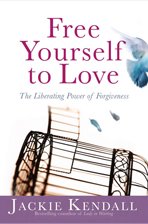How do so many wonderful single gals end up hurt by the guy who is just not that into her? The main reason she gets hurt is she breaks the 11th commandment: “Defraud Not Thyself.” Countless women actually lead themselves on through the fantasy that this guy who just chatted so charmingly with them for an hour may actually be interested in pursuing a relationship with them. Consider how often women are angry about a particular guy leading their girlfriend on in a dating relationship. Girls and women alike are angered when a guy defrauds a girl by leading her on—often the result of a guy’s agenda to merely play at love to get sex.
Yet how often do single woman get angry with their girlfriends who helped feed her own fantasy about “Mr. Right?” Defrauding oneself is such a masochistic crime against a woman’s own heart. To defraud one-self is self harm! When a gal meets a wonderful guy, her immediate response needs to be prayer and not text messaging a friend about the “Mr. Right” she thinks she has just met.
Being offended is inevitable as long as you occupy a place on planet earth—but staying offended is a choice.
After realizing the time and energy you have put into a guy who is “just not that into you,” you are likely going to be very disappointed. Inevitably, disappointment is followed by anger or depression. Because you know it is not healthy to stay angry, you will actually give yourself a “gift” when you consider forgiving this guy. The gift is your freedom.
Why forgive the guy who is just not that into you? When I don’t forgive I become a prisoner to the resentment of being defrauded by him. One needs to forgive this guy for doing what he does best—being human. People assume that “time heals all wounds,” but that is actually not true. Without the freeing choice of forgiving that guy, time simply moves the pain below the surface where it will ferment and poison your heart.
The gift of forgiving allows you to let go of hurt and move on with hope, because when you have hope, you are no one’s prisoner! Don’t be the gal who is held hostage to yesterday as she refuses to let go of unwanted hurt and move on to a new chapter. It’s in that forgiving chapter that you have the prospect of a happy ending—the freedom to hope and love again.



















